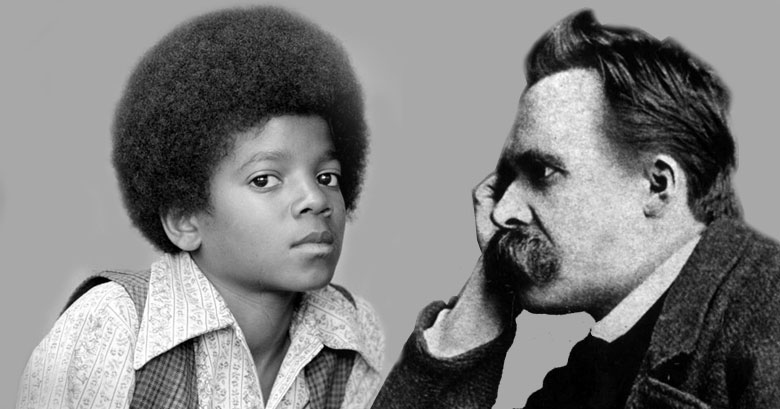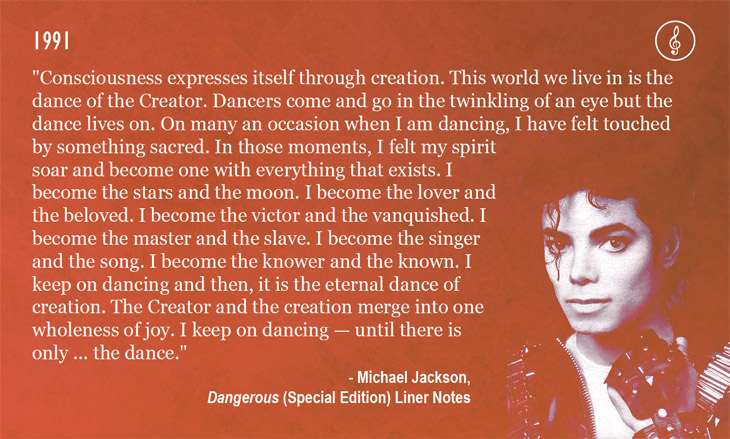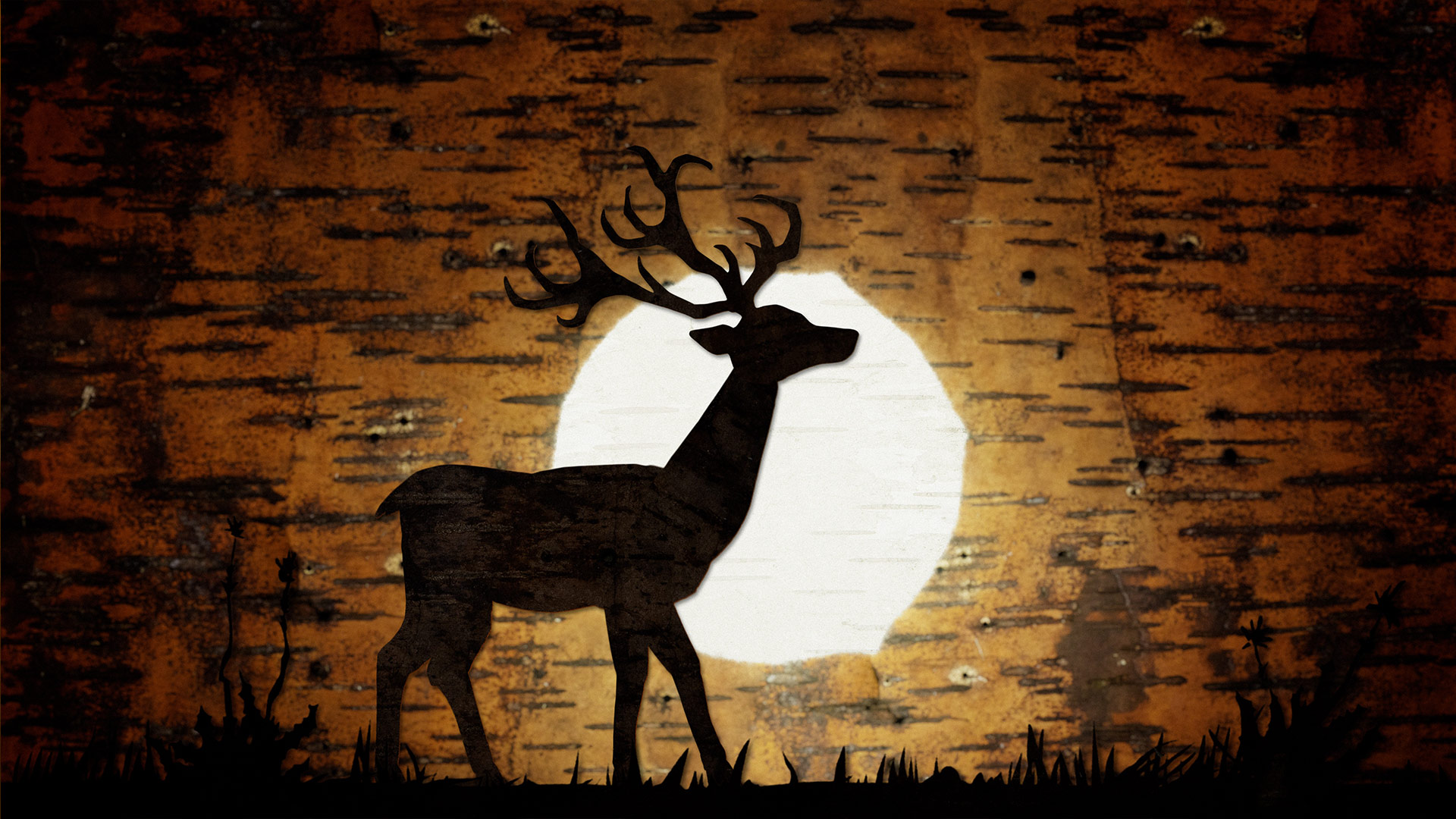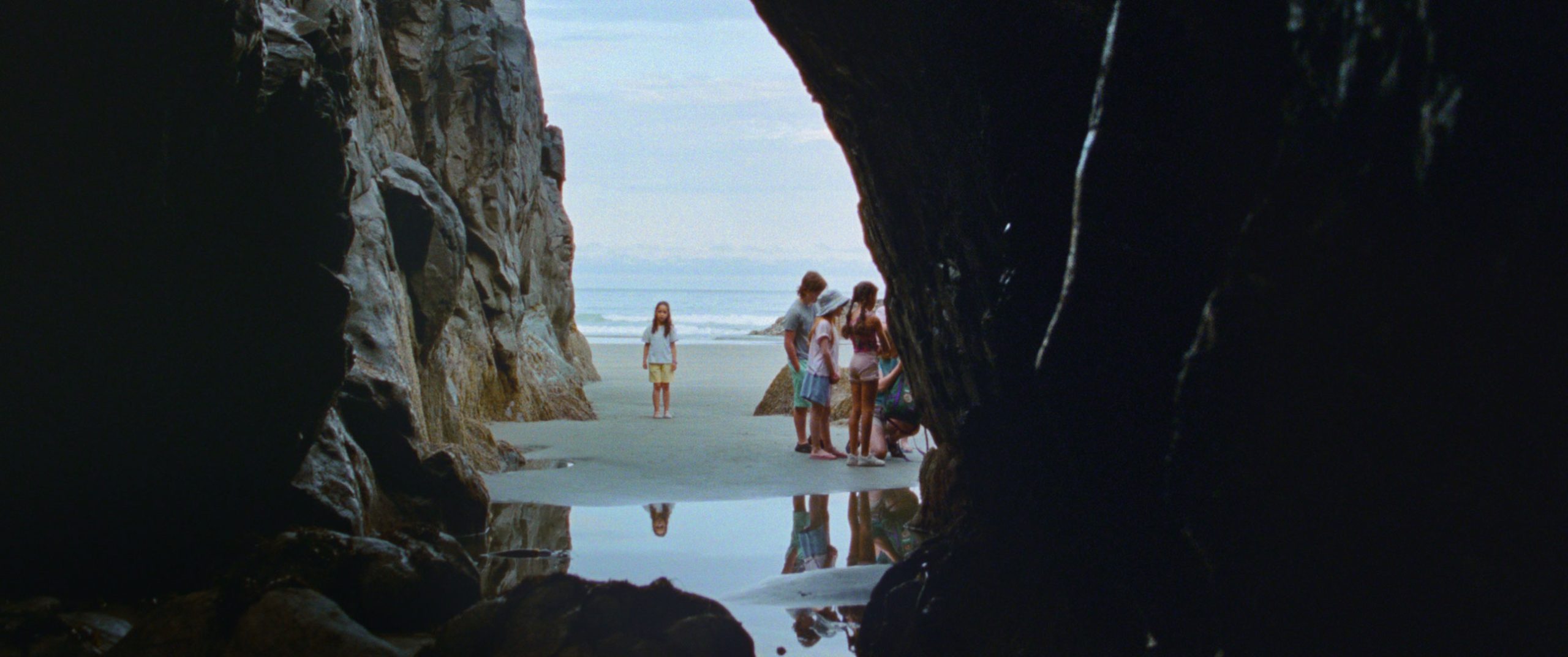 Yet most significant, and most tragic, were the accusations of child molestation that soiled Jackson’s reputation. It is utterly staggering that the one cause that was dearest to him, his advocacy for the well-being of children, would ultimately be twisted into claims of perversion and abuse. He literally established a monument to the virtue of children, his Neverland Ranch, founded in 1988, and in doing so made himself vulnerable to the conniving schemes of parents looking for lawsuit money, as well as the skeptical eye of the press. That Jackson’s message would be so distorted that the public would be made to be “ashamed of the gifts he gave them” as an artist and humanitarian seems a real life manifestation of Zarathustra’s “The Child with the Mirror”.
Yet most significant, and most tragic, were the accusations of child molestation that soiled Jackson’s reputation. It is utterly staggering that the one cause that was dearest to him, his advocacy for the well-being of children, would ultimately be twisted into claims of perversion and abuse. He literally established a monument to the virtue of children, his Neverland Ranch, founded in 1988, and in doing so made himself vulnerable to the conniving schemes of parents looking for lawsuit money, as well as the skeptical eye of the press. That Jackson’s message would be so distorted that the public would be made to be “ashamed of the gifts he gave them” as an artist and humanitarian seems a real life manifestation of Zarathustra’s “The Child with the Mirror”.

 In Nietzsche’s own personal history, perhaps the greatest crime of distortion is the co-option of his work by the Nazi movement. Nietzsche’s sister Elisabeth, who cared for him in the last years of his life after he had slipped into mental insanity, used the open-ended quality of his prose in service to her anti-Semitic and German Nationalist political views (see: Carol Diethe’s biography of Elisabeth Forster-Nietzsche, Nietzsche’s Sister and the Will to Power, for more). Again, how tragic that such a key element of his philosophy — the idea of inner strength and of boldly seizing up one’s own authority — would be applied to such a dogmatic and painfully narrow-minded movement as the anti-Semitic one. Certainly, Nietzsche recognized that some men are stronger than others, and must not be ashamed of this fact — yet he would’ve been appalled at their definition of strength, to have had his life-affirming body of work be used in such a thoroughly life-denying context. Yet the association, however thin, has been used to chisel away at him by those looking to prove his philosophy dangerous.
In Nietzsche’s own personal history, perhaps the greatest crime of distortion is the co-option of his work by the Nazi movement. Nietzsche’s sister Elisabeth, who cared for him in the last years of his life after he had slipped into mental insanity, used the open-ended quality of his prose in service to her anti-Semitic and German Nationalist political views (see: Carol Diethe’s biography of Elisabeth Forster-Nietzsche, Nietzsche’s Sister and the Will to Power, for more). Again, how tragic that such a key element of his philosophy — the idea of inner strength and of boldly seizing up one’s own authority — would be applied to such a dogmatic and painfully narrow-minded movement as the anti-Semitic one. Certainly, Nietzsche recognized that some men are stronger than others, and must not be ashamed of this fact — yet he would’ve been appalled at their definition of strength, to have had his life-affirming body of work be used in such a thoroughly life-denying context. Yet the association, however thin, has been used to chisel away at him by those looking to prove his philosophy dangerous.
Nietzsche, I suppose, was a dangerous thinker in his own way. He never hesitated to criticize the slave morality that rules the vast majority, regardless of what people would think of him. In The Genealogy of Morals, he writes: “While every noble morality develops from a triumphant affirmation of itself, slave morality from the outset says No to what is ‘outside,’ what is ‘different,’ what is ‘not itself’; and this No is its creative deed.” By contrast, his was a philosophy to say “yes!”, even or especially when it conflicted with traditional moral codes or ways of thought.
And speaking of Dangerous… it’s also the title of Michael Jackson’s fourth solo album, the follow-up to Bad. Clearly, Jackson didn’t let such labels, spun from the dominant paradigm, drag him down. Informed by Nietzsche’s discussion of the slave morality, we might even interpret these titles like so: Jackson was comfortable enough with those labels to name his albums with them — not because he “felt himself wicked,” like Nietzsche’s witch, but perhaps to take the sting out of them as the mere chiding of more enslaved minds. He would be the first to say what the naysayers were thinking, and then carry right on with his dance — taking it all, literally, in stride, as one who has stayed in touch with an inner delight that resists being swayed by external influence.
Both Nietzsche and Jackson carved out a great deal of freedom for themselves, and made the utmost good use of that freedom. Of course, this freedom came at a significant cost. A man apart is a man who must face great pain. This means the self-inflicted trials meant to cleanse and perfect his own mode of existing, as well as the public backlash towards that individual’s refusal to conform to stable mores. In these pages, I have attempted to do some healing work. We should envision these two figures reaching across time to lend each other a hand of sympathy — for in both of their cases, their ability to overcome and thrive entitled them to the deepest of joys: the heart which creates fearlessly.
Nietzsche lends to our understanding of Jackson the dignity of a philosophy. He can offer a possible interpretation for how this enigmatic and dazzling star can be viewed as a thinker. Jackson, in turn, lends to Nietzsche — the man who forever looked ahead, left only to imagine a time when his work would be enthusiastically received — a sense of hope. Jackson, an individual that embodied the Dionysian sensibility while also being capable of “bearing much”, experienced an extraordinary amount of praise and adoration in his own lifetime. His commercial success and degree of fame remains unrivaled today. What delight Nietzsche would feel in all his love of music and dancing, if we were to say to Nietzsche, with a wink, that Nietzsche himself helped crown MJ “the King of Pop”!
Ω








Wonderful and thought provoking article. Thank you!
wow! Fascinating! I really appreciate the ideas presented by this article.
Great article! You saw and highlighted the core, most important things in Jackson. Fascinating parallels. Thank you!
Very insightful article shedding light on the motivations of two great artists.
Thank you. A really thought provoking article that connects the dots for me for MJ’s life, philosophy and art. I believe that his creativity was unparallelled in pop music and culture. He challlenged us and himself in ways that only now are being realized, studied and analyzed. Thanks again for adding to this discussion and apprecation of his life and work.
[…] http://www.redefinemag.com/2013/myth-of-michael-jackson-friedrich-nietzsche-the-child-in-the-mirror/ […]
[…] Gina Altamura’s The Child in The Mirror: A Nietzschean Reading of the Myth of Michael Jackson […]